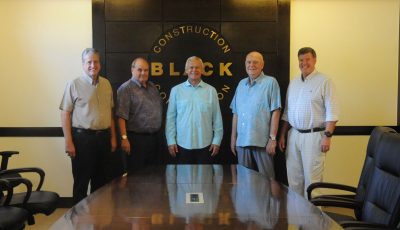No big bag is too small
‘While mimicry is a useful act of camouflage in many settings, allowing us to blend in with the faceless herd, hiding with the herd is not usually the goal of an advertisement.’
I decided to extend my great American road trip. I’ve been doing a lot of driving in the hinterlands. The last time I was out here was two years ago. That’s when a friend from Saipan engaged me to help market his mainland business to the outside world. We axed his old advertising and wrote some new material. Since you’re along for the ride, I’ll hand you a piece of beef jerky and I’ll pretty much tell you what I told my friend about this advertising thing.
As we drive these quiet highways the small-business ads on the AM radio are fading in and fading out. The businesses change. The cities change. The states change. The wording in the ads, however, doesn’t seem to change at all.
Here’s one factor that underlies all communications: What most of us say is merely a replay of what we heard somebody else say. Speech is largely mimicry. This makes sense, of course, since communications is really an exercise in heeding conventions.
Unfortunately, in the world of advertising, it can be a trap.
While mimicry is a useful act of camouflage in many settings, allowing us to blend in with the faceless herd, hiding with the herd is not usually the goal of an advertisement.
With this in mind, I’ll mention two phrases I’ve been hearing for at least 40 years, and, for that matter, that I’ve been hearing for the past 40 minutes: (1) “No job too big, no job too small,” and, (2) “Highest quality. Lowest prices.”
Are these claims convincing? I’ll admit I have some doubts.
In the first case, every project I’ve been involved with (in a variety of industries) had a definite relationship between scale and viability. Some jobs were indeed too big. Some jobs were indeed too small. A vendor who, by contrast, has infinite elasticity of scale would be very impressive, but I don’t know any buyers who would accept such a representation at face value.
And in the second case, asserting that the cheapest is also the best is swimming against the default setting of most markets. More to the point, it’s swimming against the default expectations of most consumers, so it’s probably a statement that would be more effectively replaced with some facts. In other words, show, don’t tell.
There are, of course, cases in which the lowest price does provide the highest, or at least very high, quality. When the Japanese carmakers conquered the U.S. market in the 1970s they were offering low prices and high quality. Not by mere coincidence, the Japanese were (and are) famously skilled advertisers. They were (and are) able to get their message across to American consumers. They didn’t do this, however, by merely parroting clichés.
Incidentally, there are all sorts of empty buzzwords and phrases circulating out there. I didn’t single out the two at hand for any special reason. They merely serve as examples of the breed.
Why do such phases endure? Probably because the users think they sound “businesslike” or “professional.”
If, say, a 30-second radio spot has to be filled with words, then what’s going to be said? On average, the same thing that everybody else is saying. That’s a remarkably narrow band. It’s probably a power law distribution in which a few key items (buzzwords) dominate the entire field. It’s no coincidence that one of the pioneers behind the analysis of power law distributions, George Zipf, was, in fact, a linguist.
There are several ways around this trap. In general, I think the most effective way to phrase an ad is not to try to sound like what you think a “professional” should sound like. Instead, just lay out the words like you’re describing your business, in one sentence, to a new acquaintance at a church coffee hour or a similarly polite, but not stuffy, venue. Present a few basic facts instead of rehashing the outside world’s clichés. This approach might not win the entire battle, but it’s a good way to set the tone, at least for a first draft.
After all, plain speaking is so rare that it’s not so plain anymore.
And, plainly stated, I’m done with this topic for now. I’ve switched the radio to the FM side. It’s time to enjoy some Merle Haggard as I finish off this bag of beef jerky. I love this stuff. No bag is too big, and no big bag is too small, or, uh, something like that.



























